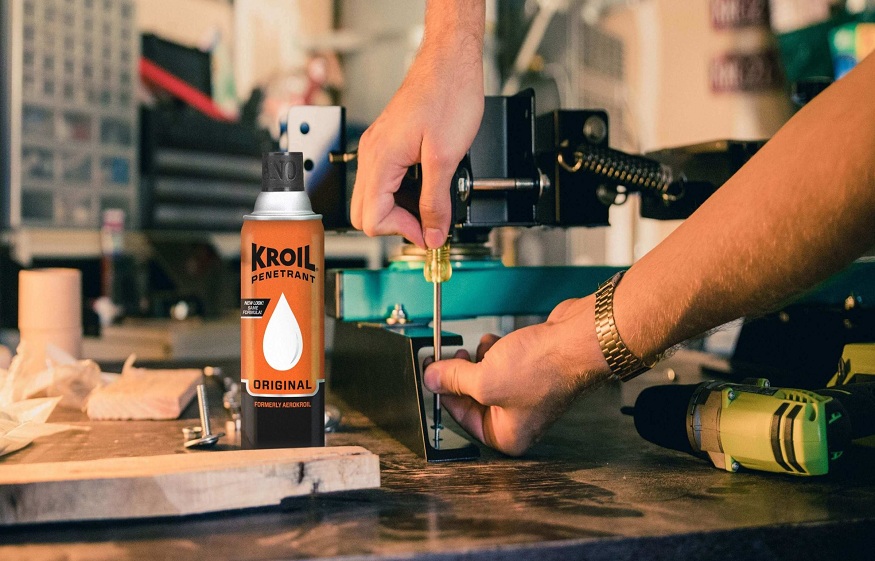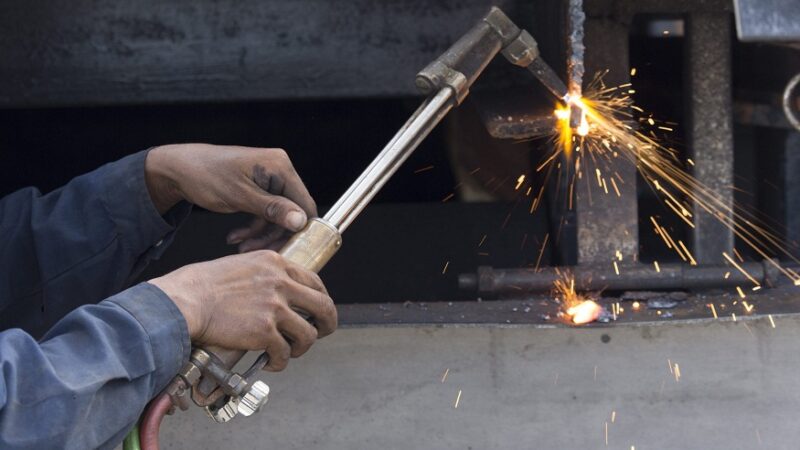How to Choose the Best Penetrating Oil for Your Needs

Choosing the right penetrating oil can make all the difference when dealing with rusted bolts, stuck nuts, or corroded metal parts. Whether you’re tackling plumbing tasks, automotive repairs, or general maintenance, the right lubricant can save time, effort, and frustration. With so many options available, it’s essential to understand how to select the best penetrating oil for your specific needs. This guide breaks down everything you need to know to make an informed choice.
What is Penetrating Oil?
Penetrating oil is a type of lubricant specifically designed to seep into tight spaces, rusted parts, and corroded surfaces. Unlike regular oils that primarily lubricate, penetrating oils have a low viscosity that allows them to penetrate microscopic gaps and loosen stuck or rusted components. They are particularly effective in situations where standard lubricants fail, making them indispensable for both professional and DIY tasks.
Why Choosing the Right Penetrating Oil Matters
Not all penetrating oils are created equal. Using the wrong type can result in insufficient lubrication, prolonged rust issues, or even damage to sensitive materials. Choosing the right oil ensures:
- Efficient Rust Removal: Penetrating oil reduces friction and dissolves rust, making nuts, bolts, and other components easier to remove.
- Time and Effort Savings: A high-quality oil works faster, saving hours of labor when dealing with stubborn fasteners.
- Versatility: The best penetrating oil can handle a variety of applications, from plumbing to automotive maintenance, without causing harm to the surfaces involved.
- Protection: Beyond loosening, many penetrating oils provide a protective layer against future corrosion.
Key Factors to Consider When Choosing Penetrating Oil
1. Viscosity and Penetration Ability
The primary function of penetrating oil is to seep into tight spaces. Low-viscosity oils flow easily, allowing them to penetrate rusted threads and joints more effectively. If your task involves deeply rusted parts, look for oils specifically formulated for rapid penetration. Oils with higher viscosity are better suited for general lubrication but may not be as effective in freeing stuck components.
2. Rust-Dissolving Properties
Some penetrating oils contain additives that actively break down rust and corrosion. These are especially helpful for plumbing applications where water and moisture accelerate rusting. Choosing an oil with strong rust-dissolving capabilities ensures faster results and reduces the likelihood of further damage during disassembly.
3. Material Compatibility
When working with metal components, particularly in plumbing systems, material compatibility is crucial. Some penetrating oils can react with certain metals, seals, or plastics. Always check the specifications to ensure the oil is safe for use on the surfaces involved in your project. This prevents unintended damage to pipes, valves, or fittings.
4. Application Method
Penetrating oils come in different application formats, including spray cans, pump bottles, and aerosol nozzles. Sprays are convenient for hard-to-reach areas and tight spaces, while pump bottles allow for more controlled application. Consider the accessibility of the parts you’re working on and select an oil with an application method that matches your needs.
5. Environmental and Safety Considerations
Modern penetrating oils vary in terms of safety, odor, and environmental impact. If you’re working in confined spaces or areas with poor ventilation, choose low-odor, low-VOC oils to minimize exposure. Biodegradable formulas are also available for environmentally conscious users.
Best Practices for Using Penetrating Oil
Even the best penetrating oil requires proper application to work effectively. Follow these tips to maximize its performance:
- Clean the Surface First: Remove dirt, grease, and loose rust before applying the oil. This allows better penetration and faster results.
- Apply Generously: Spray or pour enough oil to cover the stuck component thoroughly.
- Allow Time to Work: Patience is key. Let the oil sit for several minutes to several hours, depending on the severity of rust and corrosion.
- Reapply if Needed: For stubborn fasteners, multiple applications may be necessary.
- Use Gentle Force: Avoid excessive force that could damage the part. The oil reduces friction, making removal easier with minimal effort.
Special Considerations for Plumbing Tasks
Plumbing often involves metal pipes, fittings, and valves that may have been exposed to water, chemicals, or high temperatures. Here’s how to ensure you choose the best penetrating oil for plumbing:
- Corrosion Resistance: Plumbing parts are prone to rust, so select oils with strong anti-corrosion properties.
- Non-Reactive Formulation: Ensure the oil won’t harm rubber gaskets, plastic fittings, or other sensitive plumbing materials.
- Quick Penetration: Time is often a factor when fixing leaks or removing corroded fittings. A fast-penetrating oil speeds up repairs and minimizes disruption.
Common Mistakes to Avoid
- Using Regular Oil: Standard lubricants lack the low viscosity and rust-dissolving properties required for freeing stuck parts.
- Overlooking Material Safety: Applying an incompatible oil can damage plastics, seals, or coatings.
- Rushing the Process: Applying force too soon can strip threads or break parts. Always allow sufficient time for the oil to work.
- Ignoring Safety Precautions: Penetrating oils are flammable and may produce harmful fumes. Always work in well-ventilated areas and use gloves if needed.
Tips for Maintaining Tools and Equipment
After successfully loosening rusted components, you can extend the life of your tools and machinery by:
- Wiping Excess Oil: Remove any leftover oil to prevent dust and dirt accumulation.
- Applying Protective Coatings: Use a light coat of protective oil to prevent future rust.
- Regular Maintenance: Inspect plumbing fixtures, fasteners, and tools periodically and apply penetrating oil as needed to keep them in good condition.
Selecting the right penetrating oil can make a challenging task much more manageable. By considering viscosity, rust-dissolving properties, material compatibility, application method, and safety factors, you can find a solution that fits your specific needs. For plumbing and other applications, the best penetrating oil ensures quick, efficient results while protecting the integrity of your materials. Remember, the key to success is not just the oil itself but also proper application and maintenance practices. With the right approach, even the most stubborn rusted or stuck components can be handled with ease.





